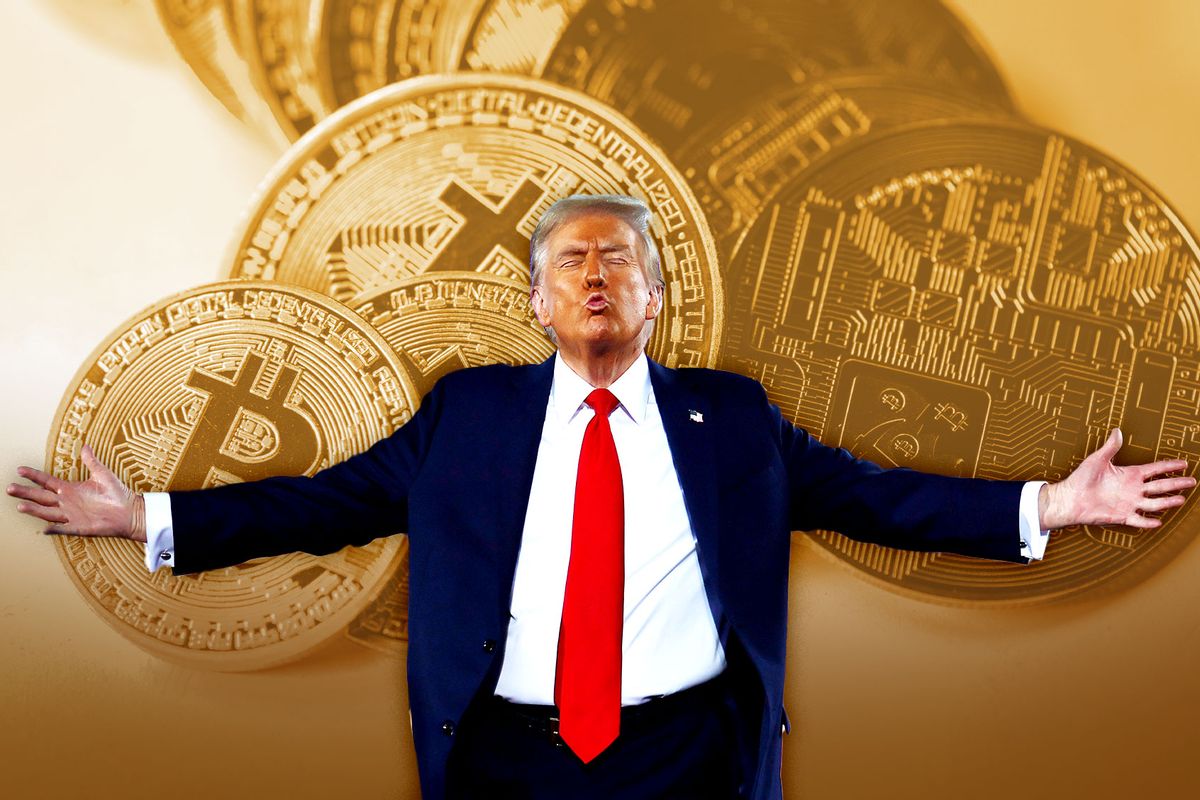On April 9, 2025, U.S. Senator Elizabeth Warren publicly accused President Donald Trump of market manipulation, sparking widespread debate across financial and political circles. The allegations stem from Trump’s recent social media activity and a subsequent policy decision that led to a dramatic surge in the U.S. stock market. This controversy has reignited discussions about the ethical boundaries of political influence on financial markets, with significant implications for investors, regulators, and the cryptocurrency market.
Trump’s Post and Policy Shift: A Recipe for Suspicion
The controversy began when Trump posted on Truth Social shortly after the U.S. stock market opened on April 9, declaring, “This is a great time to buy!!!” alongside the acronym “DJT”—his initials and the ticker symbol for Trump Media & Technology Group. Just hours later, Trump announced a 90-day delay on reciprocal tariffs for most countries, except China, which faced an immediate 125% tariff hike due to its alleged “disrespect for global markets.” This unexpected policy shift triggered a massive market rally, with the Nasdaq soaring over 12%—its second-largest single-day gain in history—and the S&P 500 rising more than 9%. Trump Media’s stock also surged by 22% that day.
Senator Elizabeth Warren, a long-time critic of unchecked financial practices, quickly called for an independent investigation into whether Trump’s actions constituted market manipulation. She argued that the timing of Trump’s post, followed by the tariff delay, raised serious questions about potential insider trading or self-enrichment. “The American people deserve to know if their financial markets are being managed fairly or if regulatory decisions are being made to benefit the President’s family,” Warren stated during a press conference. Posts on X echoed her concerns, with some users speculating that Trump may have orchestrated the rally to profit from his company’s stock surge.
Broader Context: Trump’s Crypto Ties Under Scrutiny
Warren’s accusations also tie into Trump’s growing involvement in the cryptocurrency space, which has drawn scrutiny from lawmakers. Trump and his family have been linked to projects like World Liberty Financial (WLFI), a DeFi initiative backed by the Trump family, and the TRUMP memecoin, which recently faced a $320 million token unlock amid an 89% price drop. Earlier in April, Warren and Representative Maxine Waters urged the SEC to investigate Trump’s crypto ventures, citing potential conflicts of interest that could influence his administration’s regulatory stance on digital assets.

The crypto market felt the ripple effects of the tariff delay, with Bitcoin climbing to $83,500 on April 9, reigniting hopes of reaching $100,000. However, some analysts caution that Trump’s policies, including his tariff agenda, could destabilize markets further, impacting both traditional and crypto assets. The allegations of market manipulation add another layer of uncertainty for investors already navigating a volatile landscape.
What’s Next: Calls for Transparency and Regulation
Warren’s push for an investigation has garnered support from other Democrats, including Senator Adam Schiff, who also called for a probe into possible insider trading. Meanwhile, the White House has not issued an official response to the allegations. As the controversy unfolds, it highlights the need for stricter oversight of political influence on financial markets, especially in an era where traditional finance and cryptocurrency increasingly intersect.




